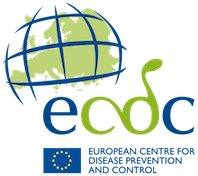Disease prevention and mitigation
Study of non-vectorial transmission of tick-borne encephalitis (TBE) in Europe

Funder: European Centre for Disease Prevention and Control

The project: Tick-borne encephalitis (TBE) is an infection of the central nervous system caused by an arthropod-borne virus. The virus is usually transmitted directly from a tick; however, non-vector modes of transmission have been documents, for example through blood transfusion, organ transplantation, breast-feeding, and food borne transmission, through consumption of unpasteurised goat, sheep and cow milk and cheese. This project will perform a systematic review to identify, collect and synthesise information on non-vectorial modes of transmission, their epidemiological impact, risk factors associated with each mode, and any possible prevention or mitigation measures that can be implemented.
The systematic review included all epidemiological studies on human cases of TBE from non-vectorial modes of transmission. We limited the search to the 27 member countries of the EU, Switzerland, Norway, and the UK, and excluded EU overseas territories. We conducted a comprehensive search of three electronic databases, grey literature searching, and scanning of reference lists of previous reviews and studies included in the systematic review. We included 40 studies in the systematic review comprising of 1316 TBE cases. Alimentary was the most common route of TBE virus transmission (36 studies), with smaller numbers of studies assessing other potential routes of transmission (handling infected materials [3 studies], blood borne [1 study]). Two included studies found there was no evidence of vertical transmission from mother to offspring. Consumption of unpasteurized milk and/or milk products significantly increased the risk of TBE by three-fold (pooled Risk Ratio 3.05, 95% confidence intervals 1.53 to 6.11, 4 studies).
Although the burden of TBE from non-vectorial transmission is small in comparison to TBE from ticks, the potential risk from consuming unpasteurised milk and milk products should be better communicated to the public. Additionally, vaccination of milk producing animals in endemic areas could further protect consumers.
For more information contact: jo.leonardi-bee@nottingham.ac.uk
Back to our research